Monteverdi: Il Ritorno D`Ulisse In Patria (Wilson)
Introduction
A performance of the 2 Act version of Monteverdi`s penultimate opera written in 1640.
The story is based on the final section of Homer`s `Odyssey` in which Odysseus returns to Ithaca in disguise and has to prove to everyone that he is indeed the ruler by threading his own bow and killing his wife`s suitors who have moved in to his palace.
The problem with music dramas from this period is that there are always questions as to the authenticity of the music, and `Il Ritorno…` is no exception. First of all, it is quite often described as a piece in five acts (the revised edition of Kobbé`s Complete Opera Book), which was cut down to three in a version published in Vienna in 1923. It has also undergone `arrangements` by Luigi Dallapiccola and Vincent d`Indy which enjoyed some exposure during the last century, but even then, it is likely that the music, orchestration and even story, was not that which Monteverdi himself conceived.
At the time, Monteverdi was old and very sick, and in cases like this it was not unusual for a composer to delegate out some of the composition of his latest work to those he thought could hack it. The musical director of this production, Glen Wilson, has come to the conclusion that many of the scenes which incolve the typical characters of the time (Jove, Mercury, Juno) were not composed by Monteverdi himself and so these have been dispensed with, leaving only those mentioned by Homer himself (but he includes the Prelude in which the character of Human Frailty bemoans the fact that he is always played with by fate and the Gods, and this is shown in the ensuing story).
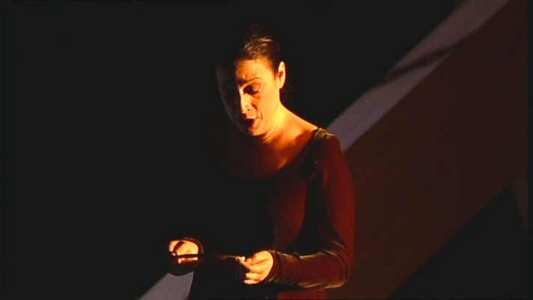
Video
The video quality of this production is excellent, and helps the viewer to experience the immediacy of a production that took place almost on top of the audience. Quite often, staged productions suffer from lighting and focus glitches when shown on the small screen but I didn`t notice anything out of the ordinary here.
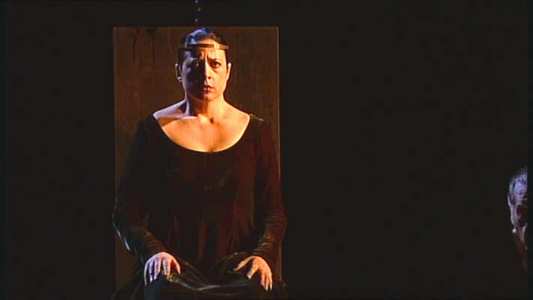
Audio
Sound-wise, we are also in luck. The balance between the singers and the orchestra is excellent, helped no doubt by the relatively small size of the band, but also because of the sparseness of the orchestration which produces a puroty of sound not often heard in music written later on. The DVD can be listened to in LPCM stero or DTS (recommended - not because of any particularly devastating surround-sound effects, but because it helps place the orchestral sound as it would be in the theatre).

Features
Extras come in the form of a small essay by Glen Wilson within the booklet, an illustrated synopsis of the plot, a cast gallery, and an interesting 18 minute introduction to some aspects of the creation of this production. Unfortunately, this appears to end rather abruptly (just before `Zeus`, the tawny eagle makes his entrance in the dress rehearsal).
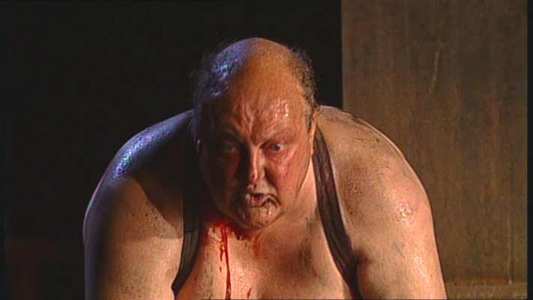
Conclusion
I was very pleased to finally get to watch an opera I had previously (to my shame) not known. I was even more pleased to see that it was a production which didn`t have any pretences to being something it was not, with no unnecessary extra scenes or non-contemporary instrumentation.
The music in this work is an almost perfect example of Monteverdi`s output, and is performed with great skill by both the singers and instrumentalists. Anthony Rolfe Johnson is a noble, if slightly haggard, Odysseus, and Graciela Araya (Penelope) is utterly believeable as his mourning wife, producing some very passionate and moving scenes.
The rest of the cast is equally impressive, most noticeably Brian Asawa (who plays both Human Frailty and Anfinomo) with fantastic counter-tenor voice, and also Monica Bacelli (Melanto) who is particularly good in the short but affecting `Ama dunque, chè d`Amore`. A highly characterful (i.e. slightly rough) voice also helped Alexander Oliver in the comically grotesque role of Iro.
For a story which ends so happily, you would expect some fast and fiery music to finish with. Not so here. The opera finishes with perhaps the most lovely and affecting music there could be between a husband and wife (who have been separated for 20 years…it could happen you know), giving the impression there is another act to come.as yet, unwritten.
Recommended to those who need some clarity in their music.
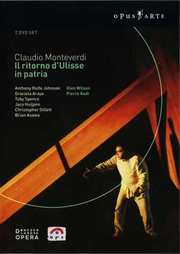
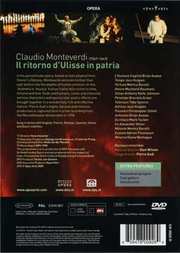


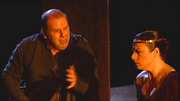

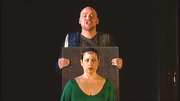
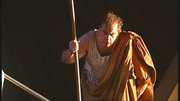
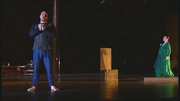
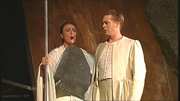
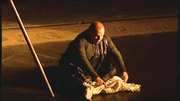
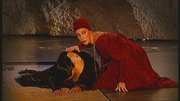
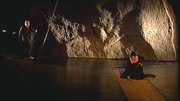
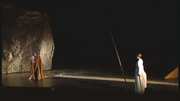
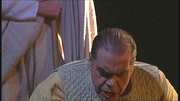
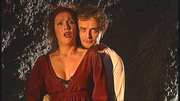
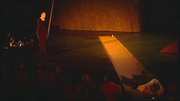
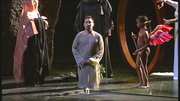
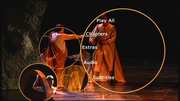






























Your Opinions and Comments
Be the first to post a comment!